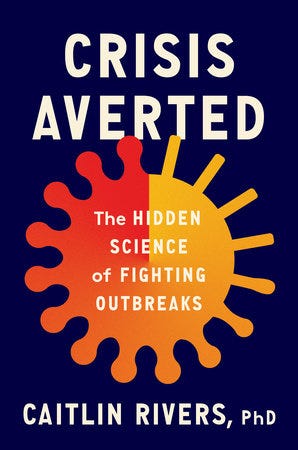We all just lost their most trusted source of vaccine guidance today. In an alarming announcement, the Department of Health and Human Services removed all 17 members of CDC’s Advisory Committee on Immunization Practices (ACIP).
ACIP is one of the most important committees when it comes to vaccines. When a new vaccine is developed, the FDA decides whether it is safe and effective, and ACIP decides clinical use, or who should be recommended to receive the vaccine. These recommendations are often tied to insurance reimbursement, making them important for accessibility. Members are appointed as special government employees, experts from outside the government who undergo extensive vetting.
In a Wall Street Journal editorial about the decision, Secretary Kennedy writes that “vaccines have become a divisive issue in American politics, but there is one thing all parties can agree on: The U.S. faces a crisis of trust.” (Oddly, this framing mirrors the lede to my February piece in the New York Times in which I wrote “But one thing nearly everyone agrees on? Vaccines are good.”)
He goes on to say that existing committee members are laden with conflicts of interest. Two links were offered to support this claim: one to an inspector general report from 2007 that comments on all CDC committees (of which there are many), with no specific findings on ACIP and one to a media article commenting on the 1998 rotavirus vaccine approval. If a student turned in a essay to me offering this as evidence, I would send it back.
This move is one of several recent developments undermining the long-standing process for assessing and approving vaccines in the United States. Last month, HHS leaders announced in a bizarre video posted on X (Twitter) that pregnant women and children would no longer be recommended to receive an annual Covid-19 vaccines, and political appointees at FDA published a piece foreshadowing a change that would limit annual Covid-19 vaccinations to older adults and people with underlying health conditions.
The pattern is becoming clear. Each of these moves, from the ACIP dismissals, to the Covid vaccine walk-backs, to the FDA policy shifts, is following the same playbook. Question the existing expertise, cite questionable evidence, then dismantle established processes, to be replaced with opaque and poorly-developed new policies.
These aren't abstract changes. When ACIP's recommendations disappear, insurance companies may choose not to reimburse for those products. Pediatricians lose their clinical roadmaps. Parents lose their trusted source of guidance. The ripple effects could be extensive.
It’s not a stretch to assume that more measures to limit vaccine availability will follow. What comes next is not clear, but the trajectory is toward more restrictions, less access, and less trust.
Caitlin Rivers, PhD, MPH, is an epidemiologist and associate professor at the Johns Hopkins Bloomberg School of Public Health. She is director of the Center for Outbreak Response Innovation. She is author of Crisis Averted, a book on the hidden history of fighting outbreaks.
.png)




